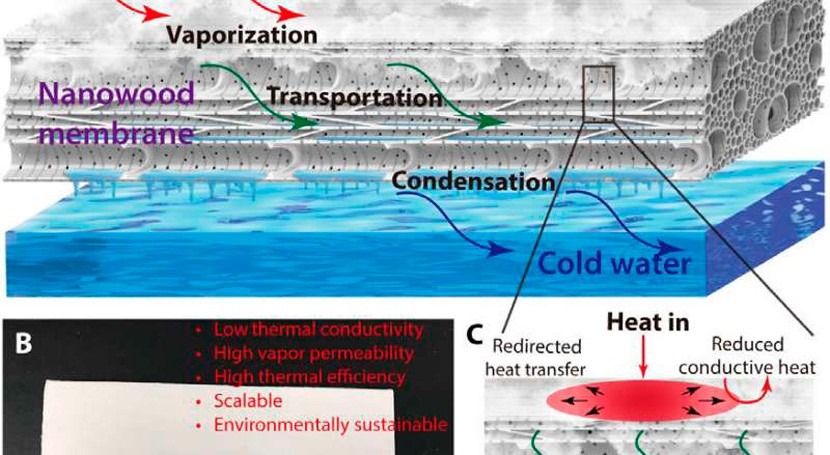Inspired by the intricate system of water circulating in a tree, a team of researchers led by Princeton University, have figured out how to use a thin slice of wood as a membrane through which water vapor can evaporate, leaving behind salt or other contaminants.
Most membranes that are used to distill fresh water from salty are made of polymers, which are derived from fossil fuels and are also difficult to recycle. The wood membrane is a more sustainable material, and according to the researchers, has very high porosity, which promotes water vapor transport and prevents heat loss.
In a paper published Aug. 2 in the journal Science Advances, the researchers demonstrate that the new membrane they designed performs 20% better than commercial membranes in water distillation tests.

Cross section of nano wood membrane used of water filtration. Credi: D. Hou, University of Colorado.


















